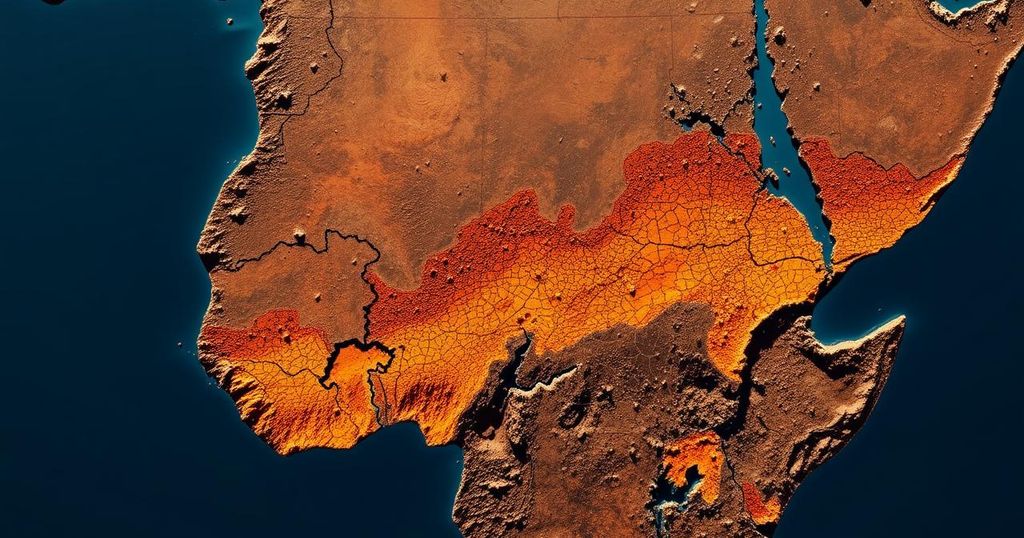Southern Africa is experiencing its worst drought in a century, affecting over 27 million people and leading to severe food shortages and child malnutrition. Nations including Lesotho, Malawi, Namibia, Zambia, and Zimbabwe have declared national disasters as crops fail and livestock perish. The humanitarian crisis is expected to worsen until the next harvests in March and April 2024, with significant impacts on electricity production and wildlife shortages.
Southern Africa is currently facing a catastrophic humanitarian crisis as a result of its worst drought in over a century. The United Nations has reported that more than 27 million individuals are experiencing severe food shortages, with approximately 21 million children suffering from malnutrition due to the unprecedented drought conditions. The drought has prompted nations such as Lesotho, Malawi, Namibia, Zambia, and Zimbabwe to declare a state of national disaster, as extensive damage to crops and livestock has been incurred. Angola and Mozambique are also grappling with the implications of this dire situation. The World Food Programme (WFP) has indicated that the crisis is expected to worsen until the next agricultural harvests, scheduled for March and April 2024. WFP spokesperson Tomson Phiri articulated the severity of the situation, stating, “A historic drought – the worst food crisis yet – has devastated more than 27 million lives across the region. Some 21 million children are malnourished.” Observations have noted that October signifies the onset of the lean season in Southern Africa, where the conditions are projected to deteriorate on a month-by-month basis leading up to the impending harvests. The significant failure of crops, along with livestock deaths, has left many children fortunate to receive just one meal per day. A large proportion of the population in the region relies on rain-fed agriculture for sustenance and income generation, which has been severely impacted by the El Niño phenomenon, resulting in below-average rainfall. Increased temperatures associated with climate change have exacerbated the situation. The impact has been significant, with Zambia reporting a 70 percent reduction in harvests and Zimbabwe facing an 80 percent decrease, as highlighted by WFP’s acting regional director, Lola Castro. Moreover, the lack of precipitation has also affected hydropower generation, resulting in widespread electricity shortages. In response to escalating resource shortages, both Namibia and Zimbabwe have initiated wildlife culling, including elephants, to supply meat for their hungry populations. According to experts, sub-Saharan Africa is especially susceptible to the effects of climate change, due to its reliance on weather-dependent agriculture and natural resources. The livelihoods of millions are intricately tied to climatic stability, while many impoverished nations lack the capacity to implement climate-resilient strategies. Climate change-related droughts and unpredictable precipitation patterns are similarly degrading agricultural productivity and endangering food security.
The current drought crisis in Southern Africa is the most severe experienced in a century, attributed primarily to climatic variances including the El Niño phenomenon and sustained climate change. This natural disaster has highlighted the vulnerability of millions of people living in the region, where agriculture is predominantly rain-fed. A significant number of individuals depend on small-scale farming for their sustenance. The accompanying rise in temperatures further complicates agricultural productivity, posing a serious threat to food security and basic livelihoods.
In conclusion, the ongoing drought in Southern Africa presents a monumental challenge, affecting millions of lives and causing widespread malnutrition among children. Action must be taken urgently to address food shortages and mitigate the ongoing humanitarian crisis. The interplay between climate change and agricultural dependency underscores the critical need for resilience-building measures in vulnerable regions.
Original Source: www.aljazeera.com






